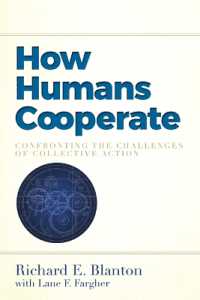- ホーム
- > 洋書
- > 英文書
- > Politics / International Relations
Full Description
Now a quarter of a century after the opening of the archives in Berlin and Moscow, the role of the German Communist Party (KPD) has been the subject of a new wave of studies. With this book, this new field of scholarship will be available in English for the first time.
The book begins with the editors' comprehensive contextualisation of the KPD within the history of the ill-fated Weimar Republic, as well its location within the Moscow-based Communist International (Comintern) thus bringing together the global and the `local'. In the rest of the book, authors offer a flavour of the rich texture of the world of German Communism. Attention is given to the party's revolutionary origins in 1918/19, accounting for the importance of not only Rosa Luxemburg's Spartacus League, but also the `Left Radicals', whose stronghold was Bremen and north-western Germany. The policy dilemmas of being a mass party in Germany are then elucidated, but ultimately, the party's fate and its policy-making were dominated by Moscow in the process known as `Stalinisation', which neared completion by the end of the 1920s.
However, this volume also includes a detailed appraisal of left-wing Communists' opposition to Stalin and Stalinisation, as well as the party's changing relationship with the SPD-led trade unions. A section in the volume presents new research on how German communism aspired to reach beyond its core support among the working class by examining its overtures to peasants, avant-garde artists, pacifists and prominent left-wing personalities outside the party's ranks. Finally, an account of Stalin's own betrayal of German communism is offered after the Nazis' `seizure of power' in 1933.
This book represents essential reading for academic, undergraduate and general readers interested in twentieth German history and politics and the interwar communist movement.
With thanks to the Nina Fishman translation award run by the Amiel Melburn Trust.
Contents
Contents
Ralf Hoffrogge and Norman LaPorte, Weimar Communism as Mass Movement: An Introduction
(I) Revolutionary Origins
1. Gerhard Engel, The International Communists of Germany, 1916-1919
2. Ottokar Luban, The Role of the Spartacist Group after 9 November 1918 and the Formation of the KPD
(II) The KPD between Revolution and Realpolitik
3. Florian Wilde, Building a Mass Party: Ernst Meyer and the United Front Policy, 1921-1922
4. Ralf Hoffrogge, Class against Class: the `Ultra-left' Berlin Opposition, 1921-1923
5. Mario Kessler, Resisting Moscow? Ruth Fischer and the KPD, 1923-1926
6. Norman LaPorte, The Rise of Ernst Thälmann and the Hamburg Left, 1921-1923
7. Marcel Bois, Opposing Hitler and Stalin: Left Wing Communists after Expulsion from the KPD
(III) Communism and the Trade Unions
8. Constance Margain, The German Section of the International of Sailors and Harbour Workers
9. Stefan Heinz, The `Red Unions' and their Resistance to National Socialism: The Unity Union of the Berlin Metal Workers, 1930-1935
(IV) Reaching Beyond the Party?
10. Sebastian Zehetmair, The KPD and Farmers: Approaches to a Neglected Research Problem
11. Ben Fowkes, Communism and the Avant-garde in Weimar Germany
12. Fredrik Petersson, Willi Münzenberg: A Propagandist Reaching Beyond the Party and Class
(V) Stalin, the `Third Period' and the German Catastrophe
13. Bernhard H. Bayerlein, The Entangled Catastrophe: Hitler's 1933 `Seizure of Power' and the Power Triangle - New Evidence on the Historic Failure of the KPD, the Comintern, and the Soviet Union








